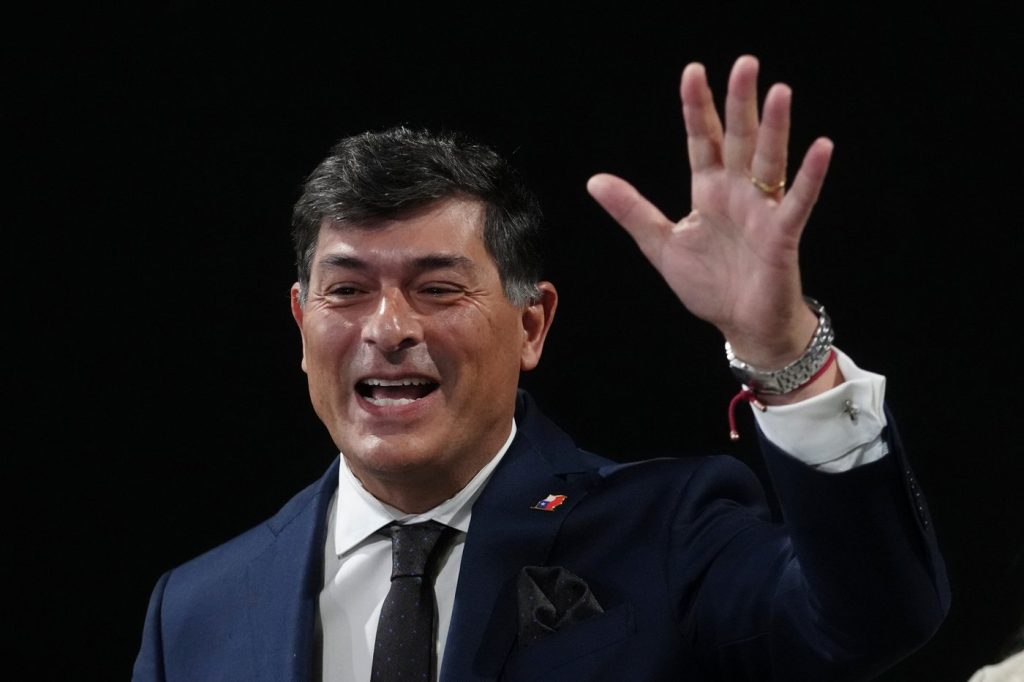SANTIAGO, Chile – Franco Parisi, a populist economist who captured 19.7% of the vote in Chile’s recent presidential election, has emerged as a pivotal figure in the aftermath of the election. Parisi, who placed third, has reported being inundated with calls from both left-wing government officials and right-wing opposition leaders, all seeking to sway the crucial 20% of the electorate that supported him in the recent election.
As Chile prepares for its Dec. 14 runoff between Communist Jeannette Jara and hard-right José Antonio Kast, the significance of Parisi's voter base cannot be overstated. Both candidates, Jara and Kast, are attempting to appeal to Parisi's supporters, yet he remains firm in his stance, stating unequivocally, “I’m not talking to either of them because I don’t trust them.” He accuses both candidates of believing more in ideology than in common sense.
In the first round of voting on November 16, Jara garnered 26.9% of the votes, while Kast followed closely with 23.9%. This polarized runoff marks a significant moment in Chile's democratic history since the return to democracy in 1990. Parisi, representing his Party of the People, encapsulated the discontent of voters frustrated with economic disparities in a country often deemed prosperous yet starkly unequal.
Parisi's party has secured 14 out of 155 seats in Congress, granting him and his supporters considerable influence. However, Parisi has expressed reluctance to utilize this newfound power, emphasizing that he is currently avoiding all outreach. He predicted that many of his supporters would resort to invalid ballots during the runoff as a means of protest against the available options, saying, “Null votes, blank ballots, that will be the big shadow of this election.”
Parisi’s campaign slogan, “neither communist, nor fascist,” captures the sentiment among voters who feel alienated by a political establishment that they believe is profiting at their expense. This statement also highlights the contentious backgrounds of both candidates; Kast’s family history includes ties to historical fascism, while Jara's career trajectory is tied closely to the Communist Party.
Furthermore, while Parisi acknowledges some alignment with Kast on capitalist principles, he remains skeptical that either candidate will address the concentration of market power among a privileged elite. He fears that a Kast administration could impose restrictions on individual freedoms, especially concerning issues like same-sex marriage and abortion. Meanwhile, he describes Jara, a product of a working-class background, as a product of the Communist Party’s traditional structures that prioritize hierarchy over real change.
In contrast, Parisi’s narrative is deeply resonant with a demographic that feels neglected by both sides of the political spectrum. His early campaign strategy, which included visually appealing content like a well-received video where he humorously sought employment from constituents, resonates with Chileans who are hungry for authentic representation. Political experts suggest that the disillusionment present in Parisi’s support base echoes a broader trend of dissatisfaction seen across the region.
Patricio Navia, a political scientist at New York University, remarked that Parisi’s supporters want to partake in capitalism, aspiring for homeownership and a fair chance in the economic landscape, yet they perceive a lack of equity in the system. This juxtaposition speaks volumes about the electorate's complexities as they navigate a polarized political climate.











